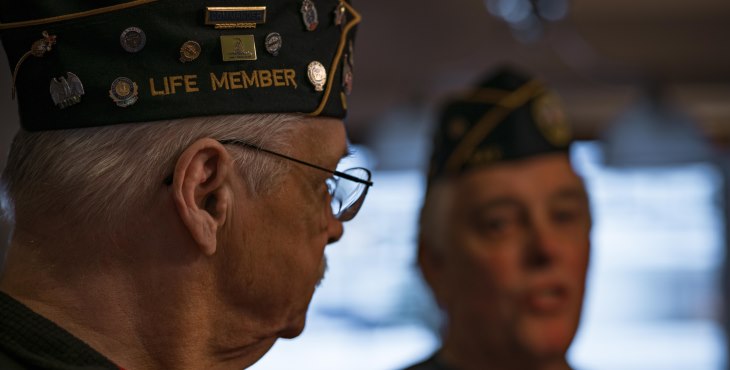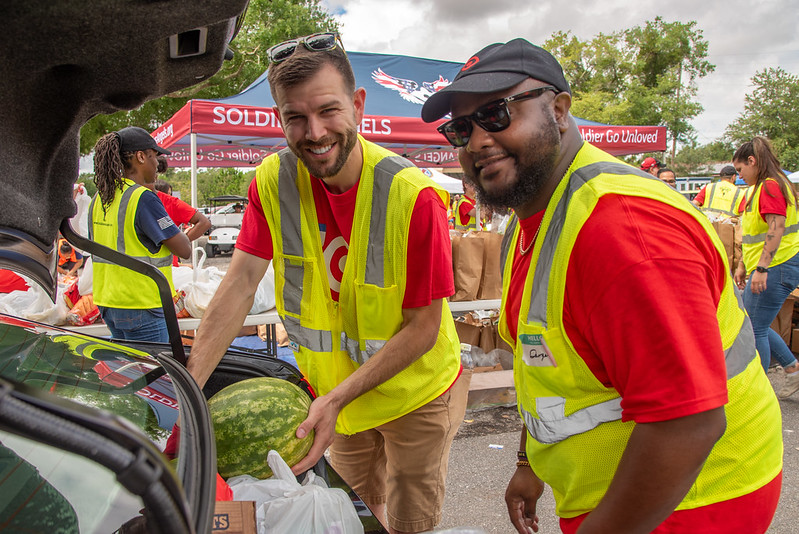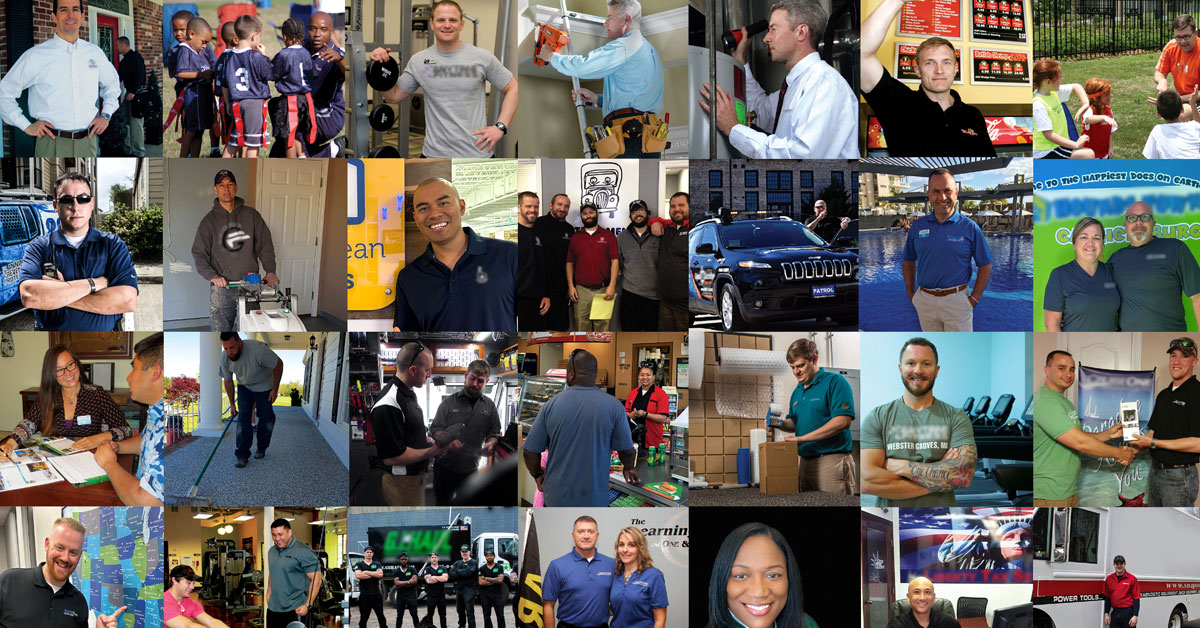Retired Lt. Col Ralph Shrigley had a knack for collecting shrapnel, though never intentionally.
In Vietnam, the Army tanker was never far from a medic, except the day an anti-tank rocket struck the turret next to Shrigley.
The explosion was deafening and its force left him trapped in his tank hatch for an hour.

Ralph Shrigley
His flak jacket was a torn mess. His groin pooled blood. The medic yelled profanity when he finally saw the damage.
Shrigley, then a 24-year-old with a wife in the States, had planned to be a family man. While his wounds were surveyed, he waited with bated breath to hear whether that plan was still a possibility.
Soon, his medic’s voice pierced the humid jungle air. “All present and accounted for, LT!”
Once medevaced, his doctor was bewildered by a bloody soldier who appeared to be the happiest patient he’d seen all day.
Shrigley is one member among many in the Fort Sherman chapter of Disabled American Veterans, a nonprofit charity chartered by Congress in 1922 devoted to supporting and improving the lives of disabled U.S. Veterans.
Bob Hunt, a retired Navy Chief Quartermaster, said it is the oldest chapter in Idaho.

Bob Hunt
Hunt said they work in tandem with local VA hospitals, often providing much needed guidance for disabled Veterans presenting evidence of eligibility for VA services.
He said they present Veterans with specific questions designed to identify information that qualifies them for VA services, based on where, when and how they served.
The DAV also owns thousands of vans across the nation with volunteer drivers on hand to escort disabled or ill Veterans to VA medical facilities.
But it’s not just paperwork and car rides. The money annually raised by the DAV is poured back into the disabled Veteran community to help with the daily hardships of life.
“And we endeavor to spend every penny every year,” said DAV field marshal Charlie Till.
Till said at monthly meetings the Fort Sherman chapter hears from local disabled Veterans about struggles they need help with, but there are individual connections outside the standard meetings and procedures.
“We had a person from our Christmas list that I went over there to look into a couple things for her and here she is holding the center of her washing machine so that it would spin, because it was destroyed,” Till said. “We got her a washing machine.”
Bryan Bledsoe, another DAV Chapter 9 officer, said their chapter collaborates with other local Veteran groups to help facilitate more resources.

Bryan Bledsoe
“These people are often times at the end of the rope. They often have nowhere else to go,” he said. “They’re there. That’s the reality of it. And there may have been some bad choices but they’re there, and now what are we going to do?”
Bledsoe served in the 25th Infantry Division in Vietnam as a helicopter mechanic when he was 19 years old.
“That year was mostly boring, except when it was terrifying,” he said.
Bledsoe said all the chapter members receive some sort of disability support from the VA, and are able to help others with their claims.
But there is more to the DAV behind the scenes.
It’s a support network of brothers and sisters in arms.
“I remember years ago we had a young lady who was Navy,” Shrigley said. “She had just gone back from the desert, and she was a welder, damage repair technician, and she’d come home from that assignment and found out that her husband had not been making payments on their condo.”
He had dropped their child off with the grandparents and left with everything they owned.

Ralph Shrigley
She had no idea where to go or how to start once stateside. Deep depression began to creep into her life, but so did a support system. There was fear she would self-harm.
Hunt stepped in and made her aware he was a retired Navy chief.
To which she said, “Yes, chief.”
Hunt then said, “You are prohibited from hurting yourself without my permission. Do you understand?”
To which she said, “Yes, chief.”
The Fort Sherman chapter then followed up with prompt financial support, Sprigley said.
Other cases abound. A disabled Veteran and her husband were affected by a collision caused by a drunk driver.
The DAV found out and set to work providing financial support, driving the Veteran back and forth to town to get her license, chopping wood for the family, getting her medication in order to help with her pre-existing pain and providing guidance on setting up disability support through the VA.
Hunt said the organization, which began as a Veteran support system in 1920 after World War I ended, is just a collection of altruistic Veterans looking out for one another no matter the circumstances of their service, life or injuries.
“They want to help people one way or another,” he said. “As I like to tell people, you don’t have to carry this load all by yourself. If you’re missing a leg, there are other people missing legs, and they can give you hints about what’s going on.”

Topics in this story
More Stories
Soldiers' Angels volunteers provide compassion and dedication to service members, Veterans, caregivers and survivors.
Veterans are nearly three times more likely to own a franchise compared to non-Veterans.
The Social Security Administration is hoping to make applying for Supplemental Security Income (SSI) a whole lot easier, announcing it will start offering online, streamlined applications for some applicants.







I have a question My husband died from agent orange my daughter who is an adult and has a disability and 2 children that live with me am I entiled for benefits for them also?